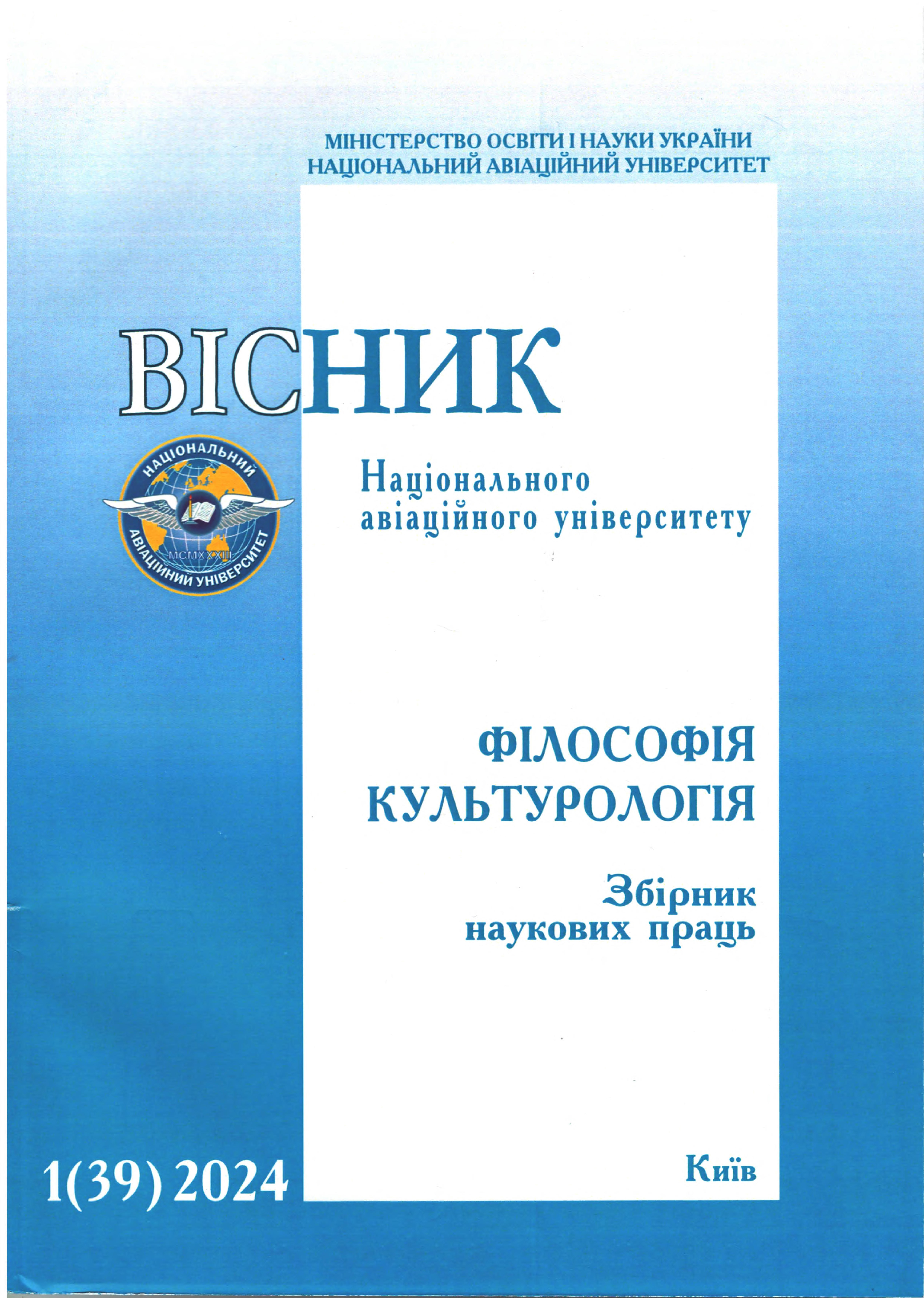ТРАНСФОРМАЦІЯ ФІЛОСОФІЇ НАУКИ В КОНТЕКСТІ РОЗВИТКУ СУЧАСНОЇ НАУКИ
DOI:
https://doi.org/10.18372/2412-2157.39.18448Keywords:
science, philosophy of science, positivism, epistemology, interdisciplinarityAbstract
Introduction. Modern science is experiencing rapid development, underscoring the necessity for novel organizational and operational models. As a distinct field, the philosophy of science is tasked with establishing a methodological ideal for science. The evolving role of science within society, coupled with its commercialization, and the sociocultural context of scientific knowledge production, requires special attention. The aim of the study is highlighting the need for changes in the teaching of the discipline "Philosophy of Science" in response to new features, characteristics, ways of organizing and carrying out scientific activity, as well as their reflection within contemporary scientific development theories. Research methods are philosophical and general scientific methods, complemented by sociocultural, systemic, and synergetic approaches. Research results. Neopositivism played a significant role in the constitution of the philosophy of science as a separate direction of philosophical research. It was positivism that insisted on criticizing philosophical methodology and promoted the use of analytical methods inherent in scientific knowledge. Gradually, a new problem is taking shape - methodology, history of science, language. After nearly a century, the philosophy of science remains a vital area of philosophical investigation due to the evolution of scientific activity. The conceptual apparatus of the philosophy of science is being rethought - concepts of object, knowledge, justification, method, value attitudes. One of the essential features of modern science is interdisciplinary; it became difficult to distinguish fundamental and applied types of research. Particular attention is paid to sociocultural aspects of the production and use of scientific knowledge. Back in the late 1980s, "Social epistemology" appeared in the USA as a supplement and in some sense opposition to the classical concepts of "pure science". Discussion. In Ukrainian textbooks on the philosophy of science, there is necessarily a section dedicated to classical concepts created by K. Popper, T. Kuhn, I. Lakatos and P. Feyerabend. However, the presentation of this material varies. Some authors merely recapitulate the ideas behind these concepts, while others criticize them and supplement them with new ideas. A third group highlights their significance for the ongoing development of philosophy and philosophical sciences. In our opinion, these classical concepts should be considered in the context of the achievements of modern science and new theories of the philosophy of science. Conclusions. The philosophy of science has been engaged in creating an evolving image of science, reflecting the dynamic nature of scientific knowledge. Philosophers study the scientific practice of a specific period taking into account the socio-cultural context and create new concepts of the development of science. All this must be reflected in the educational literature on "Philosophy of Science".
References
Berman E. Not Just Neoliberalism: Economization in US Science and Technology Policy. Science, Technology and Human Values 2014. № 39 (3). P. 397–431. URL: http://surl.li/rwlca (дата звернення: 24.01.2024).
Galison P. Ten Problems in History and Philosophy of Science. URL: http://surl.li/rwlcn (дата звернення: 24.01.2024).
Добронравова І., Білоус Т., Комар О. Новітня західна філософія науки. Підручник. К.: вид. ПАРАПАН, 2008. 216 с.
Bachelard G. Le Nouvel Esprit scientifique. URL: http://surl.li/rwlbg (дата звернення: 24.01.2024).
Fuller S. Social Epistemology: A Quarter-Century Itinerary. URL: https://www.tandfonline.com/doi/abs/10.1080/02691728.2012. 714415
Онопрієнко В. І. NBICS-технології и ризики суспільства знань.Вісник Національного авіаційного університету. Серія: Філософія. Культурологія Вип. 2 (26). 2017. С.12-15.
Дротянко Л. Філософія наукового пізнання : підручник. К.: Вид-во «НАУ-друк». 2010. 224 с.
Данильян О., Дзьобань О. Методологія наукових досліджень : підручник. Харків : Право, 2019. 368 с.

